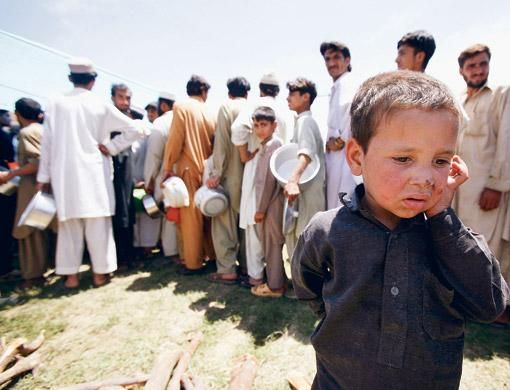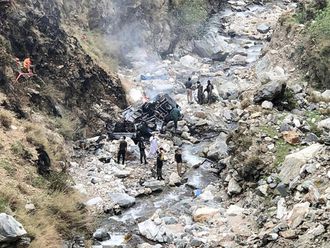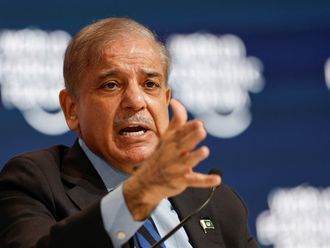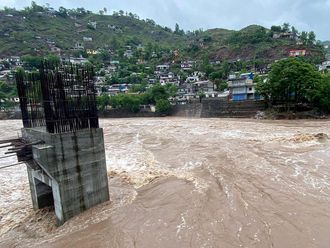Islamabad: Around 700 militants have been killed so far in the ground-and-air military offensive launched last week in Swat and neighbouring districts in northwest Pakistan, a minister said on Monday.
Interior Minister Rehman Malek, who was talking to reporters on his return home from a visit to US with President Asif Ali Zardari, said 20 soldiers had been killed and 29 injured.
About the massive exodus of people from the battle zone, he said the number of displaced could exceed one million.
He said the government was harnessing all resources to cope with the humanitarian crisis, the biggest internal migration in post-independence Pakistan.
The National Assembly here began a debate on the overall situation linked to the conflict in Malakand Division, which is made up of Swat and six other mountainous districts.
Prime Minister Yousuf Raza Gilani, in an opening statement, recounted the wave of violations of the February peace agreement by militants including attacks on troops, killing of civilians, kidnappings and destruction of government and private property. He said these "enemies of state" were pursuing a foreign-inspired agenda to destabilise the country and seize power by force.
But, he warned the armed forces of the country would crush them. "The armed forces will defeat them and force them to surrender their arms," Gilani said.
He said the government had drawn up a strategy to handle the gigantic task of looking after the multitude uprooted from Swat and other districts.
Already Rs1 billion have been allocated by the federal government and half of the amount has been disbursed to the provincial government.
A special fund with initial Rs200 million has been created. A special support group comprising senior officials from various ministries has been set up to assist the provincial government.
A donors conference will be held in Islamabad to seek international assistance for the care of the displaced people, the prime minister said, without giving a date.
Since military action is never a permanent solution, the government has prepared an "exit policy" also, he said.
The strategy envisages strengthening law enforcement apparatus in the affected districts, equipping the police there with modern weapons and jamming illegal FM radio stations run by militants, he said.
Members of Gilani's cabinet have already contributed one month salary to the special fund and the prime minister urged all parliamentarians and citizens to donate generously for the noble cause.
Neither the military nor the government have given a time-frame for completion of the military operation, saying only that the effort was to accomplish the task as soon as possible with minimum collateral damage.
Analysts say there could be ominous repercussions if the operation were to drag on or huge requirements of the displaced people living now in camps or in the open were not satisfactorily met.
Chief of main opposition Pakistan Muslim Legue-N, former premier Nawaz Sharif, became the first major politician to visit displaced people at a camp in Mardan town in the northwestern province.
He was accompanied by chief minister of North West Frontier Province, Haider Khan Hoti.













